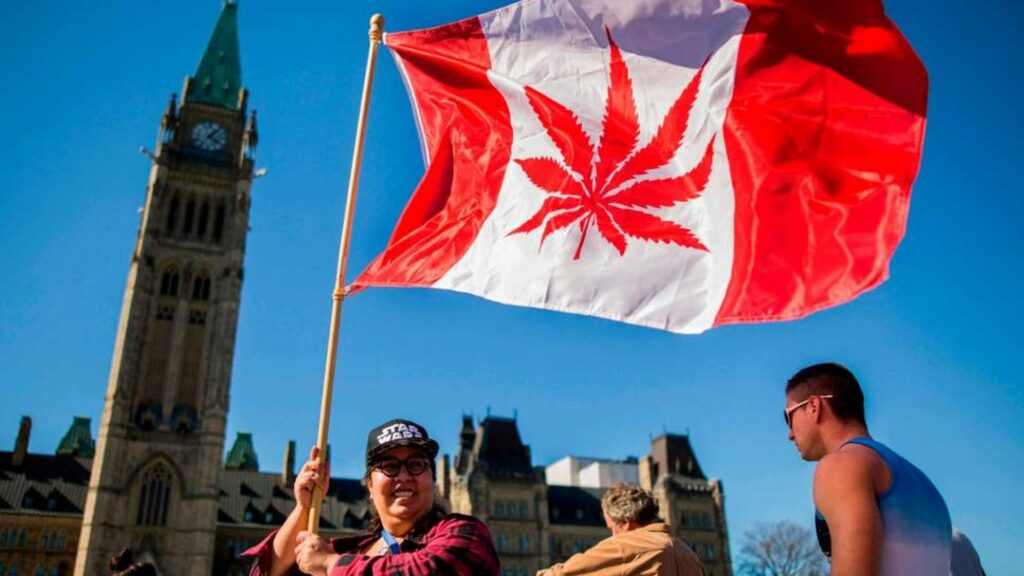In the past weeks, cannabis became federally legal to sell in Canada. For cannabis advocates, having a G7 nation legalize marijuana is a step in the right direction. But what does this mean for consumers outside of Canada? And, as their neighbor, how does this legalization affect the United States?
Influencing the Treatment of Cannabis at Home
In the U.S., eight states have recreational marijuana laws in place. Although the population in these states is more than double the size of Canada’s, Canada will be setting the bar for how a federal government handles legal cannabis. The national government will be setting overall standards but important factors—like how to distribute and sell—are the responsibility of the provinces.
Canada will reap the economic benefits of federal legalization. There are still a lot of unknowns, however. The rest of the world is watching, as Canada is the first country to take advantage of the cannabis market.
Canada is passing the United States in terms of cannabis legalization, and some see it as a missed opportunity. Sam Kamin, a marijuana law expert at the University of Denver, told Time the United States is missing out on “eliminating the costs, financial and personal, of jailing people for selling and possessing pot; driving out the black market through competition; and giving people transparency about what they’re buying.”
First and most importantly, however, Canada’s legalization gives the country a head-start on the cannabis industry, enticing investors who are wary to spend their money in the U.S. where marijuana is federally illegal.
There are also downfalls of being first. Canada will have to determine how to handle rules that vary across province borders and deal with international treaties that are committed to suppressing marijuana.
Having cannabis legalized so close to home may affect the United States’ treatment of cannabis in the future. If cannabis legalization is successful in Canada, it will most certainly influence conversations about marijuana in the United States. “It would be an important signal about the movement coming of age,” Oregon Rep. Earl Blumenauer told Time.
Notably, in late 2018, the U.S. passed the 2018 Farm Bill, which officially separates hemp from marijuana to make hemp-derived CBD oil products federally legal across the U.S..
Can a U.S. Citizen Purchase Cannabis in Canada?
Like liquor, Americans over 19 years of age can legally cross the border and purchase marijuana and marijuana-derived products. Unlike liquor stores, however, you must be 19 to enter a cannabis dispensary, even if you’re with an adult. Currently, you can purchase dried cannabis, seeds and oils along with accessories like rolling papers, pipes, and bongs. Edibles and vape oils will not be available for purchase. Adults can possess up to 30 grams of marijuana in public places.
Smoking is banned everywhere that cigarette smoking is, as well as in vehicles, and places where children gather, such as playgrounds.
You are not allowed to have any THC in your system while driving. Not only is it illegal, but it is unsafe to drive while impaired.
Finally, you cannot bring marijuana or marijuana-derived products over the border. Cannabis remains federally illegal in the United States.
Conclusion
With the flip-flop in policy from our current administration, it is difficult to tell if marijuana legalization is near in the future. In the meantime, some earlier initiatives may include veteran access to medical marijuana, acquiring banking services for the cannabis industry, and promoting scientific research of cannabis.
Legalization in Canada is a sign of the changing tone toward cannabis. Now more than ever, people are supporting cannabis legalization in the United States and research is uncovering new potentials of cannabis as a therapeutic supplement. The influence Canada may have on U.S. legislation may convince some, but U.S. citizens have an even more profound voice when it comes to cannabis legalization.
- Cannabis Legalization in Canada and What it Means for the U.S. - February 17, 2023

